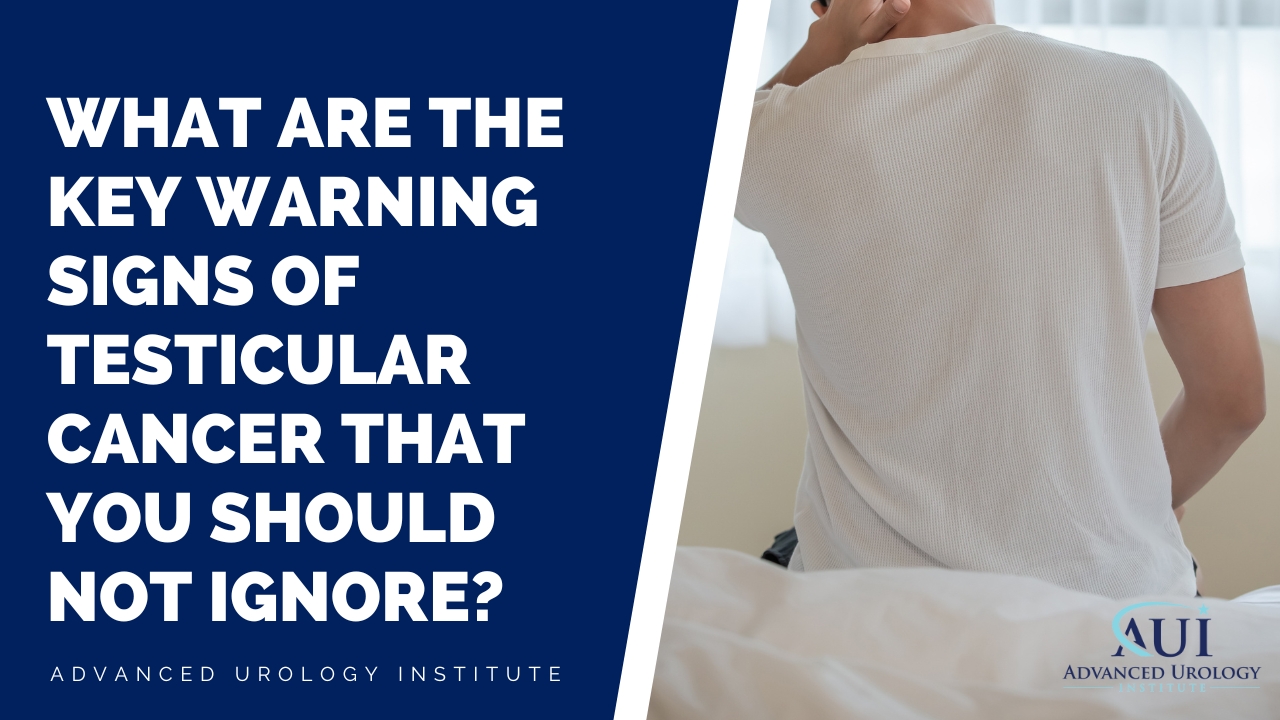What are the key warning signs of Testicular Cancer that you should not ignore?
Key Takeaways:
- Testicular cancer is the most common type of cancer in men aged 15-35 with the main symptom being a lump or swelling of the testicle.
- Risk factors of testicular cancer include family history, undescended testicular, and testicular trauma.
- Early diagnosis and treatment options such as chemotherapy, radiation therapy, and surgery make testicular cancer very treatable.
 Testicular cancer is a type of cancer that affects the testicles in men. The testicles are the part of the male anatomy responsible for producing sperm and male hormones. Testicular cancer is the most common type of cancer in men age 15-35, but it can occur at any age. It is usually very treatable when caught in its early stages. However, if left untreated, it can spread to other parts of the body, making it much more difficult to treat. That is why it is so important to know the warning signs of testicular cancer, so you can take action as soon as possible if you see any signs or symptoms.
Testicular cancer is a type of cancer that affects the testicles in men. The testicles are the part of the male anatomy responsible for producing sperm and male hormones. Testicular cancer is the most common type of cancer in men age 15-35, but it can occur at any age. It is usually very treatable when caught in its early stages. However, if left untreated, it can spread to other parts of the body, making it much more difficult to treat. That is why it is so important to know the warning signs of testicular cancer, so you can take action as soon as possible if you see any signs or symptoms.
Purpose of the Article
The purpose of this article is to provide an overview of the warning signs of testicular cancer so that you can take action if you notice any of the symptoms. We will look at the signs and symptoms, risk factors, diagnosis and treatment options for testicular cancer.
Signs and Symptoms of Testicular Cancer
The most common symptom of testicular cancer is a swelling or lump on the testicle. This lump may be firm or hard and can range in size from a pea to a golf ball. It may be painless or tender to the touch. If you notice a lump, it is important to make an appointment with a doctor right away.
Other symptoms of testicular cancer include pain or discomfort in the groin area, a heavy or dragging feeling in the lower abdomen, lower back pain, an accumulation of fluid in the scrotum, and breast growth or tenderness. These symptoms can vary from person to person, so if you notice any changes, it is important to be checked out by a doctor.
Risk Factors and Prevention
There are certain factors that can increase the risk of testicular cancer. These include having a family history of testicular cancer, having an undescended testicle, or a history of testicular trauma. It is important to know the risk factors and take steps to reduce your risk. Some prevention tips include regular self-exams of the testicles, avoiding cigarette smoking, and maintaining a healthy weight.
Diagnosis and Treatment
If you experience any of the symptoms of testicular cancer, it is important to be diagnosed and treated as soon as possible. Your doctor will likely perform an ultrasound of the testicle and a biopsy to determine if cancer is present. If the test results come back positive, your doctor will likely recommend treatment with chemotherapy, radiation therapy, or surgery.
Conclusion: Summary of Testicular Cancer
Testicular cancer is a serious health issue for men of all ages. It is important to be aware of the warning signs of testicular cancer, so you can take action as soon as possible if any symptoms arise. The most common symptom of testicular cancer is a lump or swelling on the testicle. Some risk factors, such as a family history of testicular cancer, can increase your chances of developing the cancer. If any of the symptoms are present, an ultrasound and biopsy may be performed to determine if cancer is present. Treatment options such as chemotherapy, radiation therapy, or surgery may be recommended, depending on the size and stage of the cancer.
Resources for More Information
If you would like more information about testicular cancer, the following resources may be helpful:
• National Cancer Institute
• American Cancer Society
• National Institutes of Health
• Mayo Clinic
Advanced Urology Institute
If you or someone you love is experiencing any of the warning signs of testicular cancer, it is important to get medical attention as soon as possible. Advanced Urology Institute is the largest urology practice in Florida and will provide the best possible care for your testicular cancer diagnosis and treatment. To learn more, visit their website at advancedurologyinstitute.com.
REFERENCES:
- “Common Cancer Types – NCI.” 7 Mar. 2023, https://www.cancer.gov/types/common-cancers.
- “Testicular Cancer: Symptoms and Signs.” https://www.cancer.net/cancer-types/testicular-cancer/symptoms-and-signs.
- “Testicular Cancer: Symptoms, Diagnosis & Treatment.” https://www.urologyhealth.org/urology-a-z/t/testicular-cancer.

